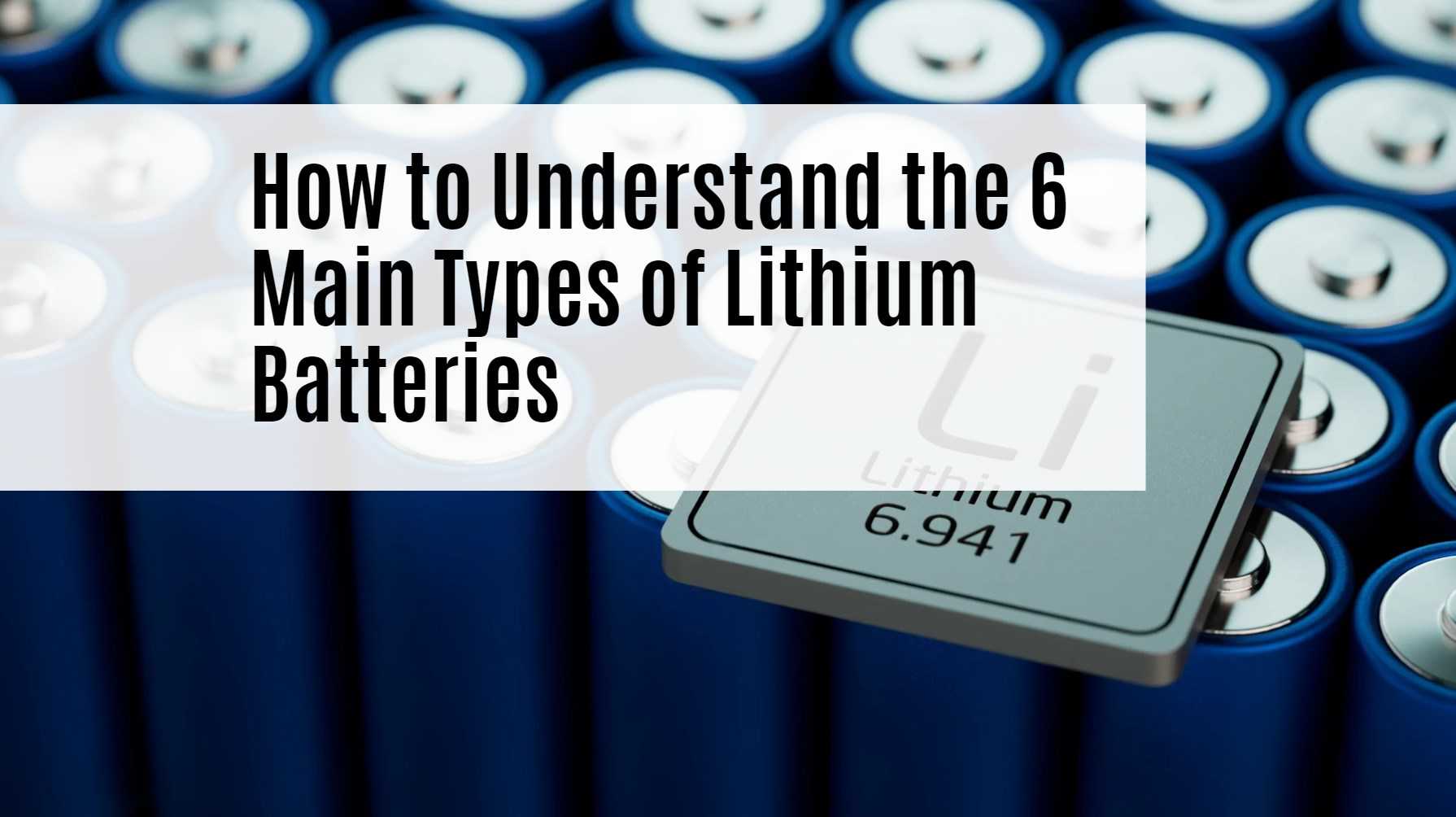Lithium batteries have revolutionized energy storage, powering everything from smartphones to electric vehicles. Understanding the six main types of lithium batteries is essential for selecting the right battery for specific applications. Each type has unique chemical compositions, advantages, and drawbacks.
1. Lithium Nickel Manganese Cobalt Oxide (NMC)
NMC batteries combine nickel, manganese, and cobalt in their cathodes. This configuration provides a balance between energy density and thermal stability, making them suitable for electric vehicles (EVs) and power tools.
- Advantages: High energy density, good thermal stability, and versatile applications.
- Drawbacks: Higher costs due to cobalt content and potential instability with high nickel ratios.
2. Lithium Nickel Cobalt Aluminum Oxide (NCA)
NCA batteries utilize nickel, cobalt, and aluminum to enhance energy density and performance. They are primarily used in high-performance applications like Tesla vehicles.
- Advantages: High specific energy and lifespan.
- Drawbacks: Expensive and less safe compared to other lithium technologies.
3. Lithium Iron Phosphate (LFP)
LFP batteries use iron phosphate as the cathode material. They are known for their safety, long life cycle, and cost-effectiveness, making them popular for stationary energy storage and electric buses.
- Advantages: Excellent thermal stability, long lifespan, and low cost.
- Drawbacks: Lower specific energy compared to nickel-based batteries.
4. Lithium Cobalt Oxide (LCO)
LCO batteries are characterized by high energy density but limited power output. They are commonly found in consumer electronics like smartphones and laptops.
- Advantages: High specific energy suitable for low-load applications.
- Drawbacks: Short lifespan, high cost of cobalt, and safety concerns.
5. Lithium Manganese Oxide (LMO)
LMO batteries feature manganese oxide in their cathodes. They offer enhanced safety and fast charging capabilities, often used in hybrid vehicles.
- Advantages: Good thermal stability and high current discharge rates.
- Drawbacks: Lower energy density compared to other lithium chemistries.
6. Lithium Titanate (LTO)
LTO batteries replace graphite with lithium titanate in the anode. This unique composition allows for rapid charging and exceptional safety but at a higher cost.
- Advantages: Extremely safe with fast charging capabilities.
- Drawbacks: Lower capacity and higher expense limit widespread use.
Comparative Summary Table
| Battery Type | Advantages | Drawbacks |
|---|---|---|
| NMC | High energy density, good thermal stability | Higher costs |
| NCA | High specific energy, long lifespan | Expensive, less safe |
| LFP | Excellent safety, long lifespan | Lower specific energy |
| LCO | High specific energy | Short lifespan, safety concerns |
| LMO | Good thermal stability | Lower energy density |
| LTO | Extremely safe, fast charging | Lower capacity, higher cost |
Latest News
- Recent advancements in solid-state technology are expected to enhance the performance of lithium-ion batteries significantly.
- Manufacturers are increasingly focusing on reducing cobalt content due to ethical sourcing concerns.
- The demand for lithium iron phosphate batteries is rising as they become more popular in renewable energy storage solutions.
Redway Expert Comment
“Understanding the different types of lithium batteries is crucial for making informed choices about energy storage solutions. At Redway Battery, we emphasize the importance of selecting the right battery chemistry based on application needs—be it for electric vehicles or stationary storage systems. As technology advances, we anticipate further improvements in efficiency and sustainability across all lithium battery types.




